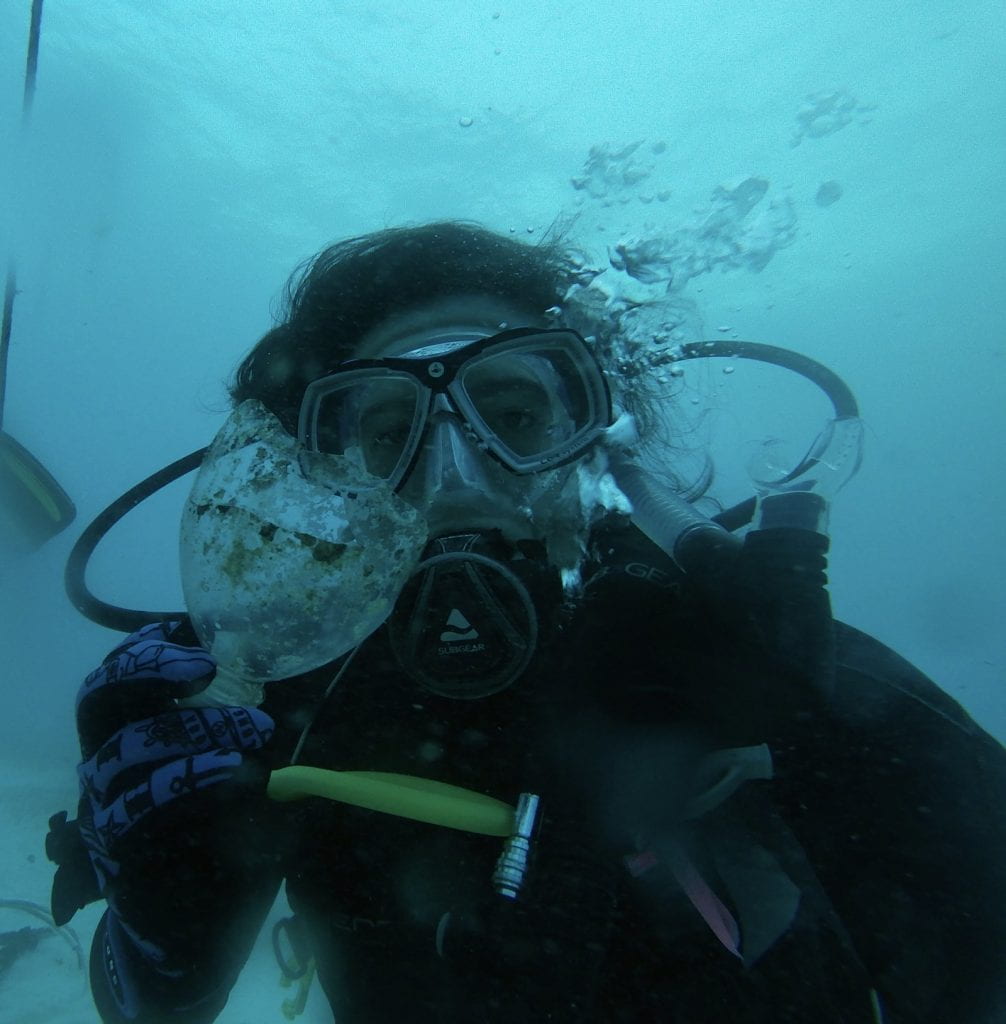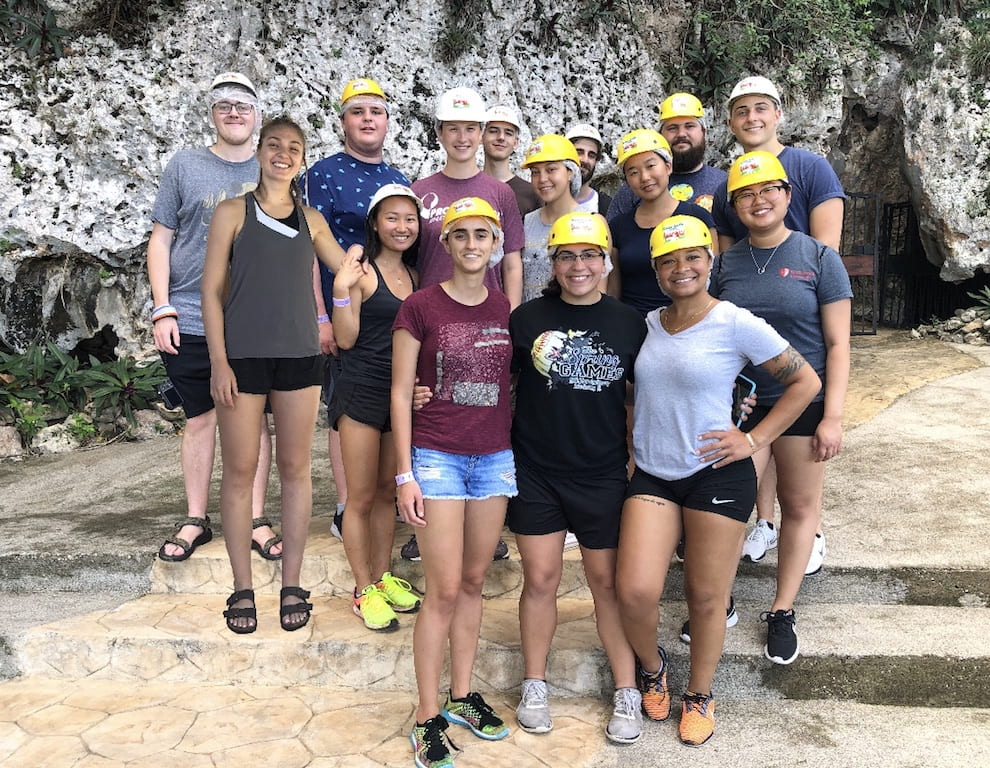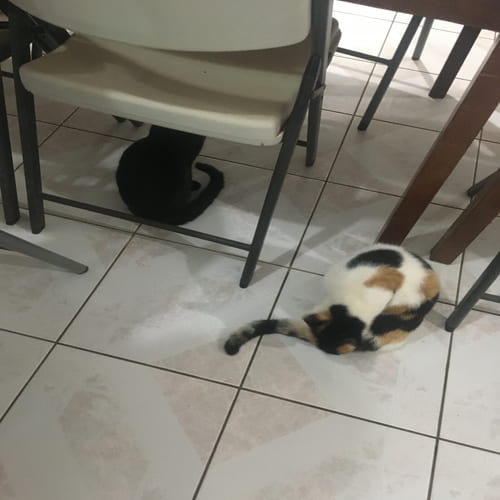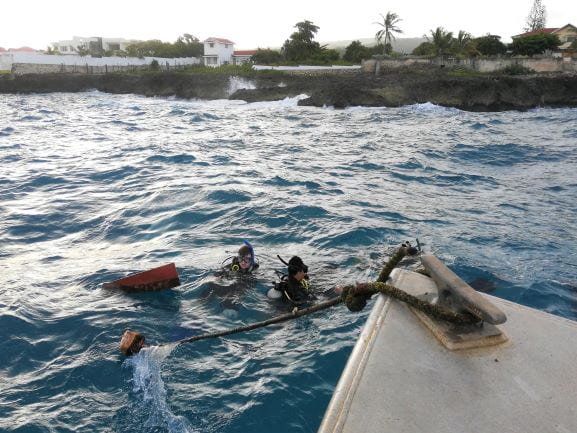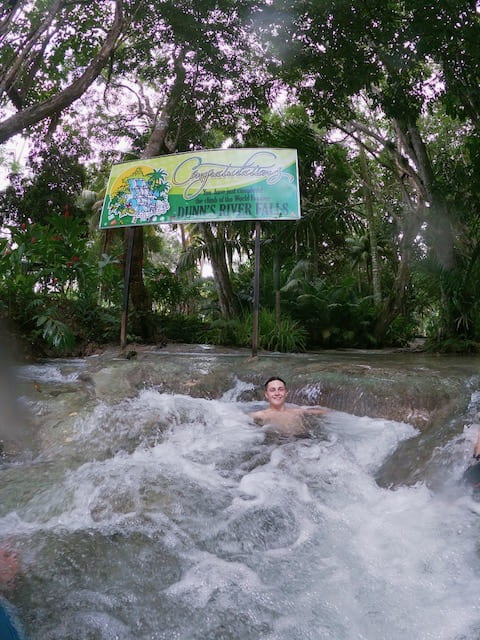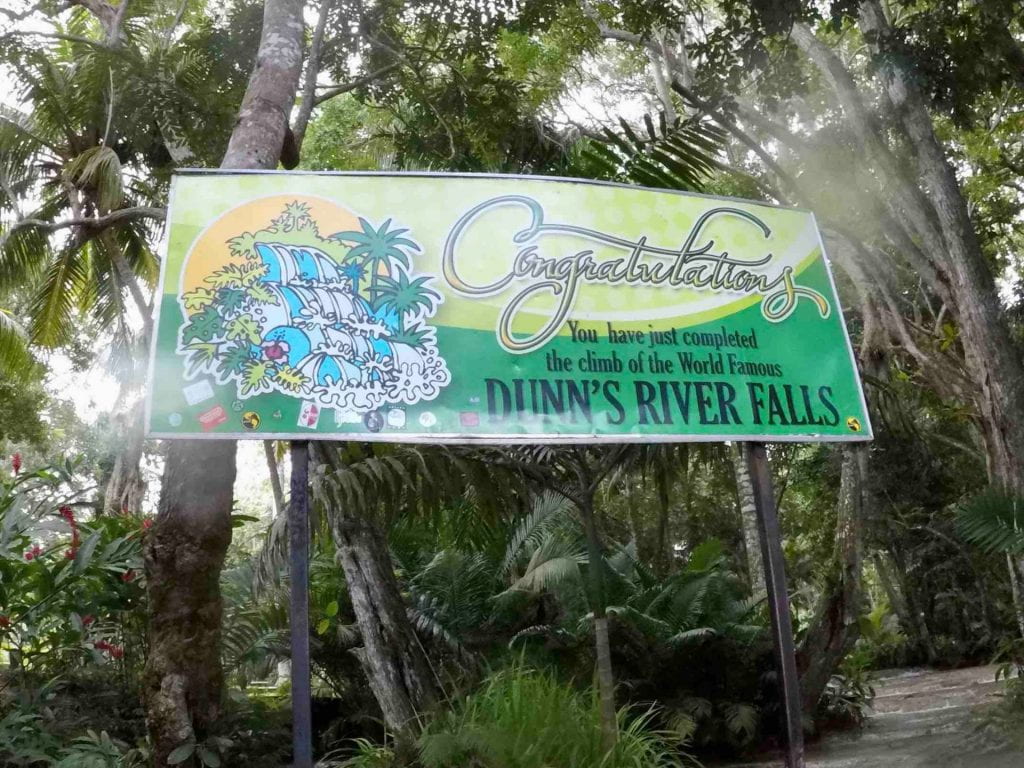So it’s been awhile, but MAR 388 / 537 will be making our triumphant return to the Discovery Bay Marine Lab in Jamaica this winter term. Come join our class which will take place January 2 – 14, 2024. For more information, check our our 2024 Jamaica handout, email bradley.peterson@stonybrook.edu, and/or submit your application to Stony Brook’s International Academic Programs office.
Category Archives: Uncategorized
Wrapping things up for 2020.
Sadly we’ve left the warmth and humidity of Discovery Bay and are now back in NY (with snow awaiting us). On behalf of Drs. Peterson and Stubler, we’d like to thank this year’s course for a great class (despite all the wind). The students ate ackee and saltfish, survived vicious damselfish attacks, collected and analyzed data, and will never forget the scientific name of a Sergeant major. They returned tanned (or slightly burnt), tired, with new friends and knowledge, and some really great pictures and memories.
Until next year,
Prof. Warren
16 Jan – Until next time Jamaica
The past few days have been spent working on our research projects and limited time in the
water, since mother nature has not been too good to us. Yesterday, we got to take a small
break from our school work and got to explore the Green Grotto caves, which are some of the
oldest caves here in Jamaica. Our tour guide took us through the in’s and out’s of the caves,
educating us with their history and telling stories about the many events that occurred inside
over the course of its existence.
Last night, a group of us decided to take a night dive to the neighboring bay, but Daeyla and I
were reluctant to go because we still have several assignments due. Despite the tensions and
studying, Brad convinced us to venture out, and as soon as I met face to face with a reef squid,
I knew I had made the right choice to go. (Thanks, Brad!) Sometimes it’s hard to take advantage
of being here when there is so much work to do in such little time, but being able to study in
tropical weather has allowed most of us to appreciate the fact that we are in Jamaica, and not
facing the cold weather back in New York.
This trip has truly been incredible. I have not only learned so much about the tropical
ecosystems that have been around us, my love for the ocean has also grown significantly. This
trip has validated that this is the field I want to be in (I guess changing my major was a good
idea after all). After an amazing 2 weeks, my new friends and I, full of new knowledge on coral
reef ecosystems, some open water dives under our belts, a few scrapes and bruises, and new
memories to look back on, we are headed back to cold NY. Although I am not quite ready to
leave the warm weather and beautiful views, I am excited to educate all my friends and family
on the importance of coral reefs (and to pet my dogs, I’m very excited to pet my dogs.)
Until next time Jamaica,
Avocado Ashley
16 Jan – Sad To Go
We finally finished taking all our exams just as the weather started to get bad. It rained practically every day. Joe even said we were in the running for the worst weather. [Ed: I can confirm this — the 2020 course had the worst weather we’ve ever had here.] Luckily, we had other things to do instead, like the Green Grotto caves.
The past two days we have all been scrambling to submit our projects and get as many snorkel/dives in as we can. We are all really upset to leave and try to talk about it as little as possible.
-Arugula/ Apple (Ariadne)
16 Jan – News Bulletin
Discussion about the status of felines in Discovery Bay Marine Laboratory ongoing; cats unconcerned.
MONTEGO BAY- Controversy over the continued presence of cats in the Discovery Bay Marine Lab has reached new tensions as polarizing opinions echo throughout the campus. Proponents of the immediate removal of cats have vocalized their concerns, with hygiene and their threat to native bird species being the main culprits. One member of the anti-cat delegation, Jason, said that “Hate” is a strong word. I’m allergic to cats, and I strongly dislike them. I have met some cool cats though”. This response was met with vitriol from the other aisle, with Michelle retorting “I like cats”. However, not all students have taken a concrete stance on the issue yet. One student who chose to remain anonymous stated “How do you not know my name by now? We fly back home in 2 days” No cats were available for comment.
-Samuel
15 Jan – Diving and Data Analysis
On Monday, we went to a dive site called the Dairy Bull. It was given this name because, every time a large wave rushes in, the water goes through a hole and makes a noise that sounds like a bull. Before this, I had never considered how much the weather conditions affect diving conditions. I know that snorkelers are affected by how high the windspeed is and how large the waves are where they are snorkeling. I thought that, because divers are under the surface of the water, we would be completely unaffected by the waves. However, even thirty feet underwater, we could still feel a rocking motion from the waves passing above us. It was challenging to swim along the bottom without hitting anything due to the current, but the whole dive was still very fun. I found it peaceful to watch the sea fans sway in the current. We saw a lot of different fish there, and two students caught lionfish with a polespear!
Yesterday, we created seagrass tethers for an experiment. I was very excited to participate in a research project while in Jamaica. We gathered seagrass shoots from Discovery Bay and cut and measured them before clipping them to ropes to create tethers. The point of this project is to analyze herbivory rates on seagrass shoots with different ratios of nitrogen and phosphorous.
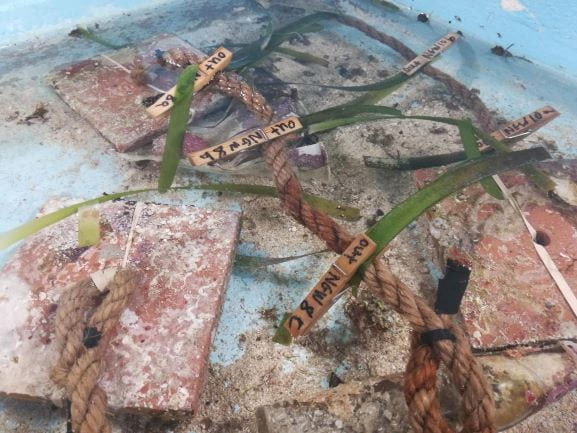
These are our tethers in the wet lab. We attached tiles to them to keep the ropes from floating away in the water.
We were planning on setting our tethers out in the bay yesterday, but the current was too strong for us to swim out and put our tiles down. We left our tethers in the wet lab under flowing water, and we are analyzing data from our other transects project instead. Later today, we are planning to go on an excursion to a nearby cave system. Can’t wait!
Nancy (Nigiri)
15 Jan – Dunn’s River Falls Part 2
The last time I came to Jamaica, the weather was slightly different, with the high of a crisp 94 degree and 90% humidity blessing the island. Naturally much like any other human being I easily became drenched in sweat, but to my surprise many of the locals did not experience the same level of perspiration as me. This time around the weather was more palatable, making the visit much more enjoyable, being able to challenge myself by racing up the falls also didn’t hurt to make the experience one of my favorite moments of the trip.
– Jason L.
14 Jan – Rough Water Dive
Today we started the morning early and went diving at Dairy Bull around 7am. The water was quite rough; the waves were strong and getting our gear on in the water under these conditions was difficult to say the least. I am very thankful that both my professors are very experienced scuba divers and were able to help me whenever I needed it during my dives. During this dive in Dairy Bull, which was not one of our deeper dives, we only descended to around 30-34 feet. The corals, sponges, and fishes were so colorful and tempting for me to touch. Since we were tested on the identifications of most of the organisms in these waters it was fun to point them out and know what they were. My favorite was seeing a lionfish go after a smaller fish, and to my surprise lionfish are a lot smaller then I was expecting them to be. Since the winds were high, we were experiencing strong waves that were even pushing us around when were on the bottom. Which was a bit worrisome when the current can easily push you into diademas (long-spined sea urchins) nearby.
Around half-way through our dive I began to ascend when I wasn’t trying to. I started to wave for help and three of my friends (Nancy, Ashley, ad Jason) all pulled me back down repeatedly. The issue I now realized I was having was that I wasn’t vertical enough to get the air out of my BC, and I had put too much air when trying to find my neutral buoyancy. The good part was that I had the best dive buddy, my friend Nancy who stayed by my side the whole time and ascended with me and helped me get the air out of my BC. It didn’t help that the waves brought up a lot of sediment under the water, so the visibility wasn’t great. Once we got back to the boat the hard part was getting in the boat when the waves are pushing you all around and you’re wearing weights and a heavy tank. Nevertheless, we both got on board safely and not soon after we started to see the rest of our class swimming toward the boat.
It was quite the experience and one that I probably would have panicked more about if I had not had my dive buddy, Nancy. So big shout out to her for not only finding my snorkel when a wave knocked it off my mask, pulling me back down to the floor when I started ascending, but most importantly never leaving my side. I would always want her to dive with whenever I go diving again; with that said, can’t wait to see what happens or what we see on our next dive. 😀
Sandra
14 Jan – The Falls
So during our time in Jamaica we have done plenty of activities to keep us busy like snorkeling, diving and study marine biology. But one day we needed a break from it so we went to Dunns river falls and Ocho Rios. We started at the bottom of the falls and made our way up all the way to the top. For me this was a new Challenge because I had a fear of heights. But with a little encouragement from the professors and the students helping I manage to climb all the way to the top. Soon after we made our way to Ocho Rios. When we got there I went and attempted to take out money but that was tricky. At first I thought that you put in American amount of money but you had to put the Jamaican dollar amount. We visited a few shops and ate lunch I ended not buying many souvenirs. Overall that day was one of the best days here in Jamaica for me.
– Ryan
13 Jan – Vomiting in a Regulator on a Daily Basis
It’s been nine days and perhaps a lifetime (if one could define a life by the period of time that occurs between an individual’s birth and death) and I can safely say that I’ve never learned so much about the ocean, as well as myself, in such a short time. It’s a strange thing, to be able to wake up having 15 hours of sleep over the course of three days, eat a meal composed almost entirely and exclusively of carbs, and discuss complicated biological concepts with an array of people, varying in every way that our species can, without providing context or a framework of information otherwise needed to follow along. To share my fascination for the ocean and its inhabitants has been nothing short of everything that I’ve searched for, and I feel that this trip has proven itself as the large, existential toe penetrating the surface of what is the rest of my, and my peers’, lives.
I have gone from exhausted to confused, and then from confused to aggravated, back to confused, and then overjoyed. I’m beyond thankful for the cnidarian stings, the coral scratches, the calloused feet, and the star-filled skies viewed best from the jetty. I’ve tried to take every day slowly, and still, somehow, it’s passed me by.
Warm regards,
Jason M.
[Ed: Yeah, we have no idea how the blog title ties into the blog post either. But we give the students latitude when writing these things…]



